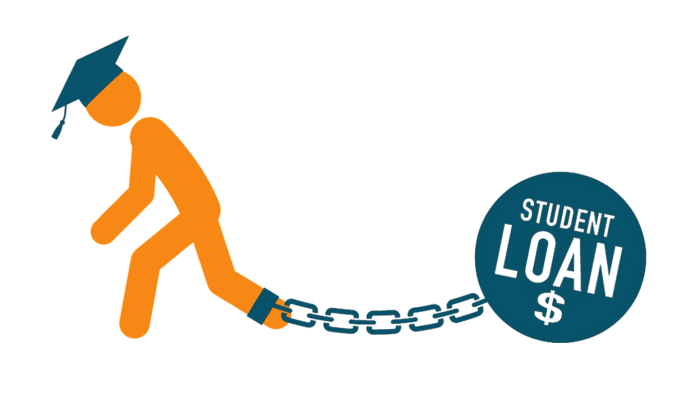
Navigating the world of student loans can feel overwhelming, especially when the prospect of finding a co-signer looms large. Many students lack access to a reliable co-signer, leaving them wondering if higher education is financially attainable. Fortunately, no co-signer student loans offer a pathway to funding your education without relying on a guarantor. This guide explores the intricacies of securing these loans, examining eligibility criteria, interest rates, repayment options, and alternative financing strategies.
Understanding the nuances of no co-signer student loans is crucial for responsible financial planning. This guide aims to demystify the process, providing clear, concise information to empower students to make informed decisions about their financial future. We’ll delve into the requirements set by various lenders, compare loan terms and interest rates, and discuss the importance of financial literacy in managing student loan debt effectively.
Eligibility Criteria for No Co-Signer Student Loans

Securing a student loan without a co-signer can be challenging, but it’s achievable for students who meet specific criteria. Lenders assess applicants based on their demonstrated ability to repay the loan, considering factors such as income, credit history, and academic standing. Understanding these requirements is crucial for a successful application.
Income Requirements for No Co-Signer Student Loans
Lenders typically require applicants to demonstrate a sufficient income to comfortably manage loan repayments. While specific income thresholds vary significantly depending on the lender and loan amount, a consistent income stream from employment or other reliable sources is generally expected. Applicants with part-time jobs might find it harder to qualify compared to those with full-time employment and a stable income history. Some lenders may also consider other sources of income, such as parental support or scholarships, but this is not always guaranteed. The higher the loan amount, the higher the income requirement is likely to be. For instance, a lender might require a minimum annual income of $25,000 for a $10,000 loan, but significantly more for a larger loan amount.
Credit History Expectations for No Co-Signer Student Loans
A strong credit history is often a prerequisite for securing a no co-signer student loan. Lenders view a positive credit history as an indicator of responsible financial management. This usually involves a credit score above a certain threshold, which varies between lenders, and a track record of timely payments on existing debts. Applicants with limited or negative credit history, such as late payments or defaults, may find it difficult to qualify. Building a positive credit history before applying for a student loan is highly recommended. For example, using a credit card responsibly and consistently paying bills on time can positively impact credit scores. The absence of a credit history, or a history marred by negative entries, significantly reduces the chances of approval.
Comparison of Eligibility Requirements: Federal vs. Private No Co-Signer Student Loans
Federal and private student loans differ significantly in their eligibility requirements, particularly for those seeking loans without a co-signer. Federal student loans, such as those offered through the Federal Direct Loan program, generally have less stringent eligibility criteria than private loans. Federal loans primarily consider factors such as enrollment status and financial need, making them more accessible to students with limited credit history or income. Private lenders, on the other hand, place greater emphasis on credit scores, income, and debt-to-income ratios, making it more difficult to secure a no co-signer loan. The interest rates and repayment terms also vary significantly between federal and private loans.
Comparison of Lenders’ Eligibility Criteria
| Lender | Minimum Credit Score | Minimum Income | Other Requirements |
|---|---|---|---|
| Lender A | 680 | $30,000 | Proof of enrollment, satisfactory academic standing |
| Lender B | 660 | $25,000 | Strong repayment history, low debt-to-income ratio |
| Lender C | 700 | $35,000 | Co-signer may be required for loans exceeding $20,000 |
| Lender D | 650 | $20,000 | Demonstrated ability to manage finances, potential for income growth |
Loan Amounts and Interest Rates

Securing a student loan without a co-signer can significantly impact the loan amount and interest rate you receive. Understanding these factors is crucial for responsible financial planning during your education. Lenders assess your creditworthiness and financial history to determine both the amount they’re willing to lend and the interest rate they’ll charge.
The loan amounts offered for no co-signer student loans vary considerably depending on the lender, the applicant’s credit history, and their demonstrated ability to repay the loan. Generally, these loans tend to have lower maximum borrowing limits compared to loans with co-signers. This is because the lender assumes a higher level of risk without the added security of a co-signer’s credit.
Loan Amount Examples
Several lenders offer no co-signer student loans, though specific amounts vary based on individual circumstances. For instance, a lender might offer a maximum loan amount of $10,000 for undergraduate students with excellent credit and a strong academic record. Another lender may cap the amount at $5,000 for students with less established credit. It’s important to shop around and compare offers from multiple lenders to find the best terms.
Interest Rate Comparison: Co-signer vs. No Co-signer
Interest rates for no co-signer loans are typically higher than those for loans with co-signers. This reflects the increased risk for the lender. A co-signer’s good credit history mitigates this risk, allowing the lender to offer a lower interest rate. For example, a student with a co-signer might secure a loan with a 5% interest rate, while a student without a co-signer might face a rate of 8% or higher, depending on their credit profile and the lender’s policies.
Factors Influencing Interest Rates on No Co-Signer Student Loans
Several key factors influence the interest rate a lender offers on a no co-signer student loan. These include the applicant’s credit score, credit history, debt-to-income ratio, and academic performance. A higher credit score and a strong credit history generally translate to lower interest rates. Similarly, a lower debt-to-income ratio demonstrates greater financial responsibility and can lead to more favorable interest rates. Lenders may also consider the applicant’s chosen field of study and projected earning potential when assessing the risk involved.
Average Interest Rates for Various Loan Terms
The following table presents estimated average interest rates for no co-signer student loans. These are illustrative examples and actual rates may vary significantly based on individual circumstances and lender policies. It is crucial to check directly with the lender for the most up-to-date information.
| Loan Term | Lender A (No Co-signer) | Lender B (No Co-signer) | Lender C (With Co-signer) |
|---|---|---|---|
| 5-year | 7.5% – 9.5% | 8% – 10% | 5% – 7% |
| 10-year | 8.5% – 10.5% | 9% – 11% | 6% – 8% |
Ending Remarks

Securing a no co-signer student loan requires careful planning and a thorough understanding of your financial situation. By carefully researching lenders, comparing loan offers, and developing a realistic repayment plan, you can pave the way for a successful educational journey without the burden of needing a co-signer. Remember, responsible borrowing and financial literacy are key to managing your student loan debt effectively and achieving long-term financial well-being. Take the time to explore all your options and choose the path that best suits your individual circumstances.
Essential Questionnaire
What is the typical credit score requirement for no co-signer student loans?
Credit score requirements vary significantly between lenders but generally require a good credit score (often above 670) to qualify for a loan without a co-signer. Some lenders may offer programs with slightly lower requirements, but higher scores usually result in better interest rates.
Can I refinance my no co-signer student loan?
Yes, refinancing your student loan is often possible once you’ve established a positive credit history and payment record. Refinancing can potentially lower your interest rate and simplify your repayment plan, but be sure to compare offers carefully before refinancing.
What happens if I miss a payment on a no co-signer student loan?
Missing payments on a student loan will negatively impact your credit score and could lead to late fees, increased interest rates, and even default. Defaulting on a loan can have severe long-term financial consequences. Contact your lender immediately if you anticipate difficulty making payments.
Are there any government programs that help students obtain no co-signer loans?
While federal student loans do not require co-signers, they are based on financial need and may not cover the full cost of tuition. Some state or local programs might offer additional assistance, but eligibility varies widely.
